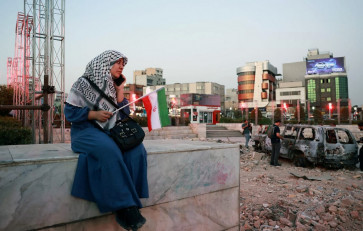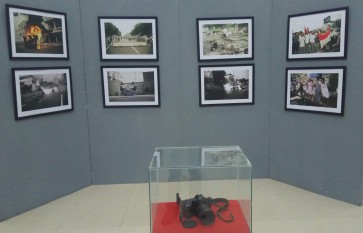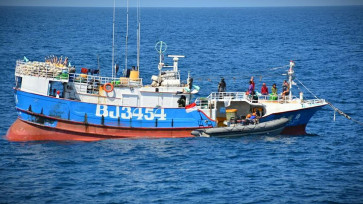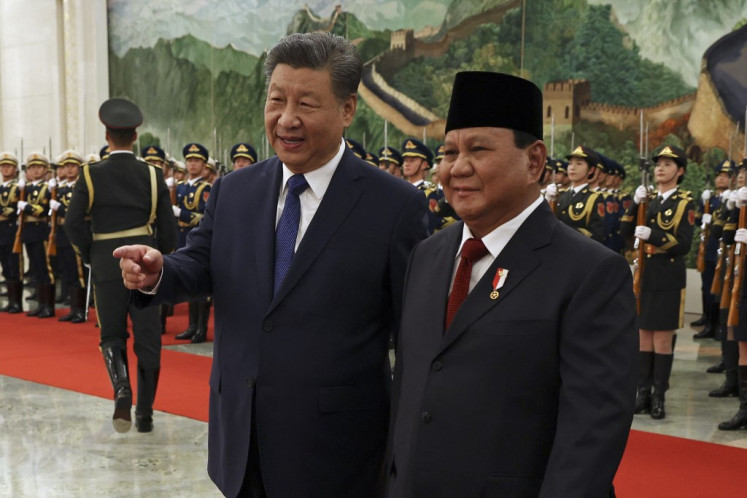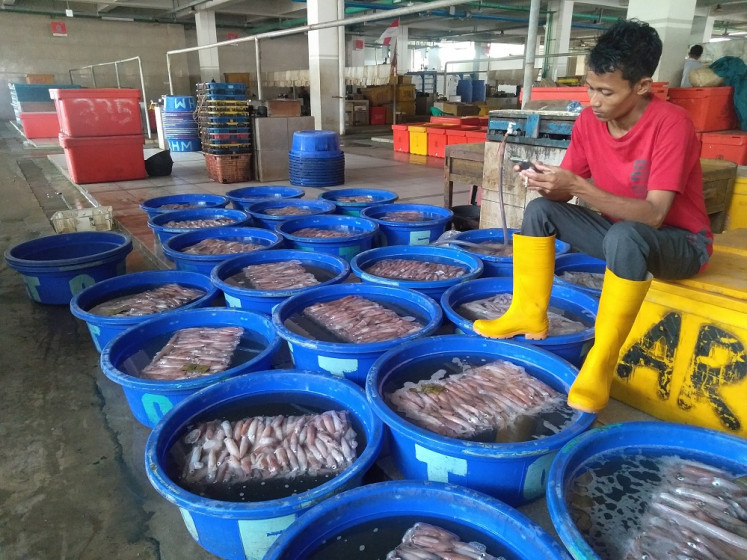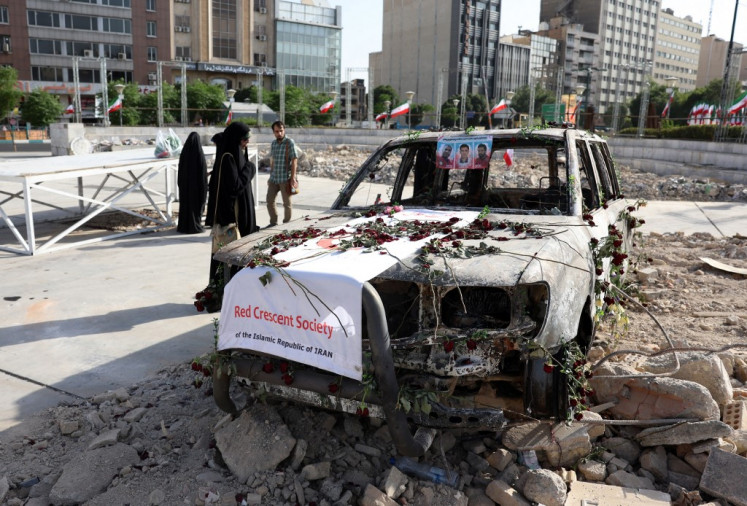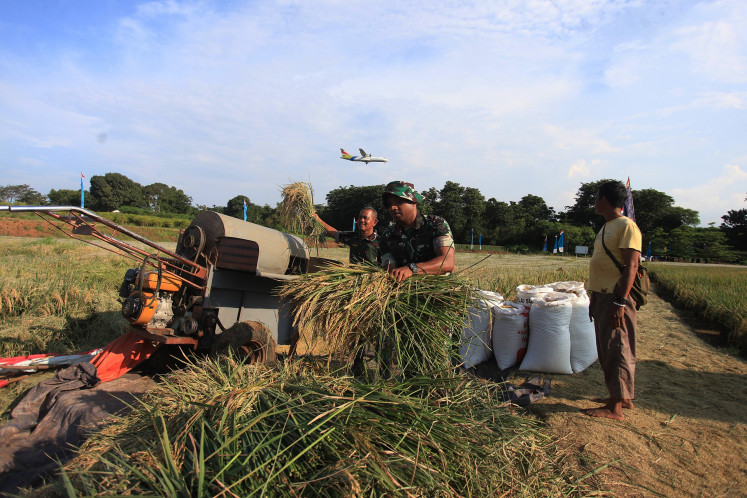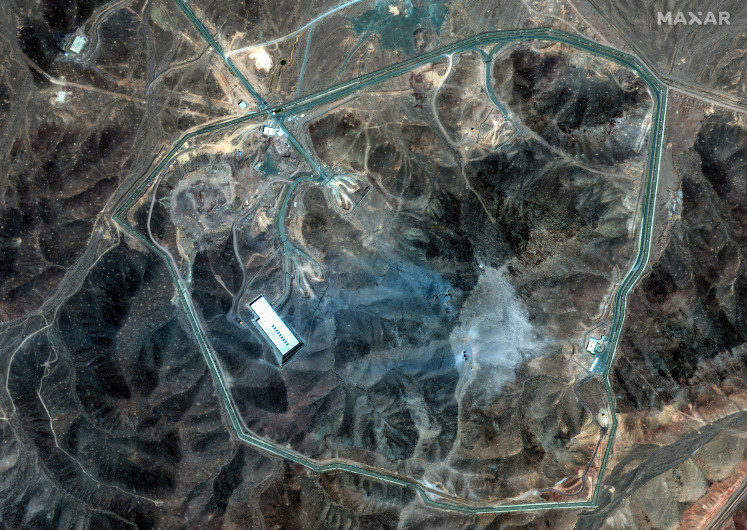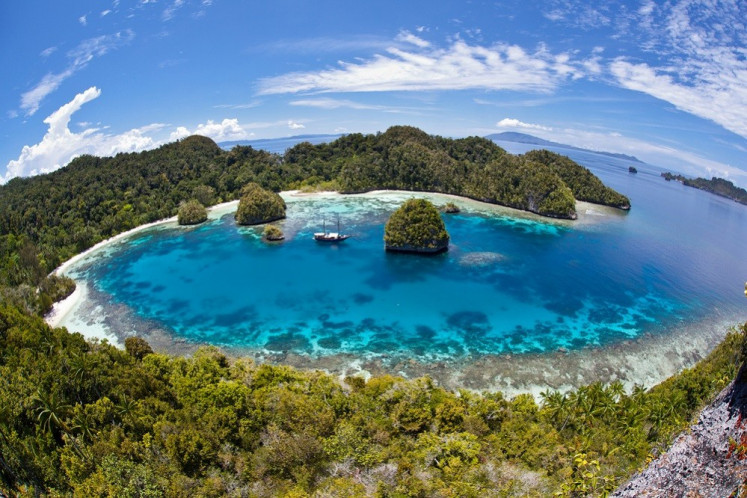Popular Reads
Top Results
Can't find what you're looking for?
View all search resultsPopular Reads
Top Results
Can't find what you're looking for?
View all search resultsDon't worry about Wiranto
Finally, soon after President Joko “Jokowi” Widodo swore in Wiranto as the coordinating minister for political, legal and security affairs on July 27, a US State Department spokesperson said “the US is also aware of the allegations of human rights violations against Wiranto when he served as the commander of Indonesian Military [TNI], formerly ABRI.”
Change text size
Gift Premium Articles
to Anyone
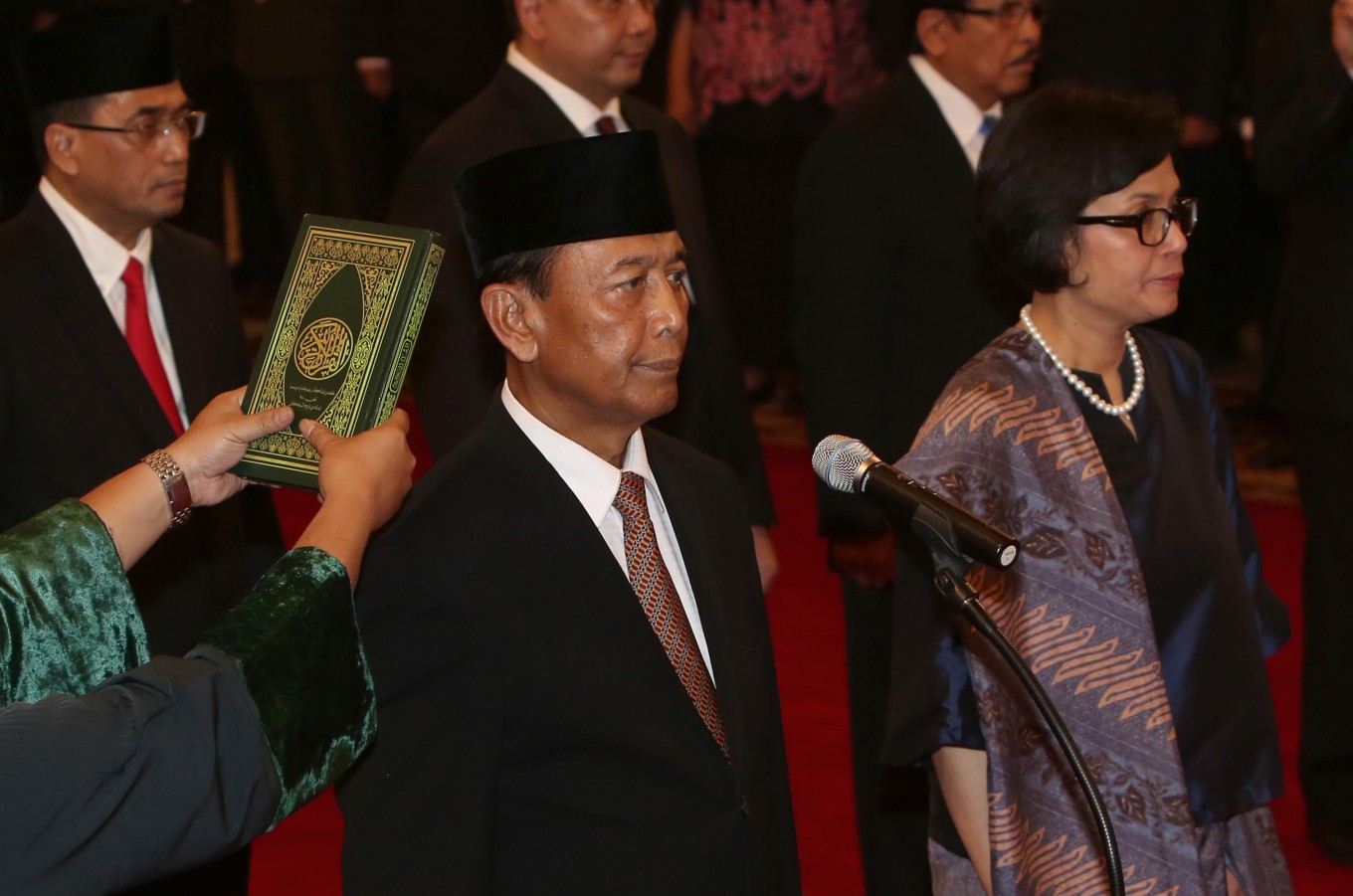 Indonesia's newly appointed Coordinating Minister for Legal, Politics and Security Affairs Wiranto, left, and Finance Minister Sri Mulyani Indrawati, right, are sworn in during the inauguration ceremony for the new cabinet members at the State Palace in Jakarta, Wednesday, July 27, 2016. Indonesian President Joko "Jokowi" Widodo announced a new Cabinet on Wednesday that puts the retired general linked to human rights abuses in charge of security and returns the popular reformist to the finance ministry. (AP Photo/Tatan Syuflana)
Indonesia's newly appointed Coordinating Minister for Legal, Politics and Security Affairs Wiranto, left, and Finance Minister Sri Mulyani Indrawati, right, are sworn in during the inauguration ceremony for the new cabinet members at the State Palace in Jakarta, Wednesday, July 27, 2016. Indonesian President Joko "Jokowi" Widodo announced a new Cabinet on Wednesday that puts the retired general linked to human rights abuses in charge of security and returns the popular reformist to the finance ministry. (AP Photo/Tatan Syuflana)
“Have you seen the latest disposition from the President?” Caught off-guard, then foreign minister Ali Alatas responded: “What disposition?” General Wiranto held up a copy of a letter sent by Australian Prime Minister John Howard with President Habibie’s disposition on it regarding the independence option of Timor Leste. A stunned Alatas listened as Wiranto explained Habibie’s plan. Exclaiming “My God”, Alatas immediately turned to an assistant to ask if a copy of Habibie’s memo had arrived. The staff member replied “No, sir”. It later became clear that Alatas had not been consulted about the Timor Leste policy shift (ETAN/Joyo: 2002).
It was a dialogue shortly before a Cabinet plenary meeting led by President BJ Habibie on Jan. 27, 1999 between Alatas and Gen. Wiranto, then the defense minister and Armed Forces (ABRI) commander. And it soon became apparent that Wiranto’s was a minority view among top officers, the vast majority of whom have served in Timor Leste and come from the Army’s elite corps, Kopassus.
First of all, regardless the reactions of the ABRI (now TNI) as a whole, Wiranto did not object to the proposed independence option of Timor Leste per se. The then-East Timorese leaders have acknowledged what really happened during a Cabinet meeting, where Wiranto had expressed support for Habibie’s January initiative.
Second, the US State Department in its Country Reports on Human Rights Practices dated Feb. 23, 2000 reported that Indonesian security forces were responsible for numerous instances of indiscriminate shooting of civilians, torture, rape, beatings and other abuse, and arbitrary detention in Jakarta, Aceh, Irian Jaya (now Papua), Maluku and elsewhere in the country.
Finally, soon after President Joko “Jokowi” Widodo swore in Wiranto as the coordinating minister for political, legal and security affairs on July 27, a US State Department spokesperson said “the US is also aware of the allegations of human rights violations against Wiranto when he served as the commander of Indonesian Military [TNI], formerly ABRI.”
And if the latter does not fly, the perception remains haunted that all crimes against humanity in Timor Leste in 1999 was because of the failure of the then ABRI commander to guarantee security during and after the referendum, which saw Timor Leste opt for independence.
But Wiranto has repeatedly denied all allegations and any wrongdoing. He gave a Vietnam War example for his case by arguing that US soldiers killed a number of innocent villagers in the My Lai incident in 1970s.
Third, many accused Wiranto of a crime of omission. Human rights groups accused Wiranto of turning a blind eye to the violence committed by soldiers and pro-Indonesian militias prior to and after the referendum. It was quite obvious that the rogue elements in the military were acting on their own initiative with little knowledge of superiors in Jakarta.
Fourth, in terms of “institutional responsibility” two commissions, CAVR (The Commission for Reception Truth and Reconciliation, with UN sponsorship) and the CTF (Bilateral Commission of Truth and Friendship Indonesia-Timor-Leste) had submitted reports in 2005 and 2008 respectively. One report contained a detailed account of the 1975-1999 conflict including human rights atrocities, the other was regarding human rights abuses in 1999.
With the CTF recommendations, the Indonesian civilian movement and armed forces as well as pro-autonomy movements must all bear institutional responsibility for gross human rights violations targeted against civilians perceived as supporting the pro-independence cause. It should be noted that in October 2011, the two presidents of Indonesia and Timor Leste stated that their governments accepted the contents of the CTF report and committed to implementing its recommendations through a plan of action to be completed in five years, i.e. by October this year.
Then president Susilo Bambang Yudhoyono accordingly tasked the coordinating minister of political, legal and security affairs with the implementation of the action plan in Indonesia. Both the CAVR and CTF reports had really made similar recommendation in relation to the following matters: training in human rights for the military and police in both countries; the establishment of a follow-up institution; healing for victims; and programs for the missing and separated Timorese children.
The two commissions refer to telling the terminology of truth. The real facts about something: the things that are true (Miriam Webster dictionary). Some clarifications are needed therefore, whether Wiranto or his rivals within the Army masterminded the atrocities in 1999. Washington’s message to Jakarta recently is clear that they would continue to discuss the importance of accountability for past abuses and addressing impunity within the security forces.
Wiranto once stated that his dismissal in 2000 as coordinating minister for security was a result of advice of other military officers close to then President Abdurrahman Wahid.
Most likely Wiranto had become the main target of all parties concerned but with various interests. That’s the reason why then Timor Leste president Xanana Gusmao in 2003 regretted the UN serious crime unit for indicting Wiranto over the atrocities in Timor Leste, adding that it was not Timor Leste’s policy.
Whatever happened in the past, the governments of the two countries have already ended a chapter. That President Jokowi has selected Wiranto to serve in the Cabinet is only a matter of political stability and strengthening the incumbent’s position for the 2019 presidential election. It is a matter of domestic affairs actually, not related to Indonesia’s foreign policy.
Let alone Wiranto, although still the chairman, is no longer involved in day-to-day operations of his political party, Hanura Party.
***
The writer is senior adviser of International Relations Studies Program at FISE Respati University Yogyakarta and guest lecturer at Gajah Mada University’s School of Economics and Business. He was co-director of CTF in Denpasar ( 2005 ) and Indonesia’s representative in Timor Leste (2000-2003).
---------------
We are looking for information, opinions, and in-depth analysis from experts or scholars in a variety of fields. We choose articles based on facts or opinions about general news, as well as quality analysis and commentary about Indonesia or international events. Send your piece to community@jakpost.com.

